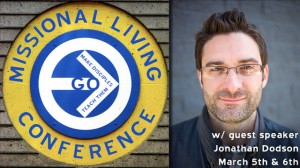The missional leaders of Soma Communities, Jeff Vanderstelt and Caesar Kalinowski, have helpfully distinguished missional communities from various other church structures by stating what they are not.[1] In their helpful document, “Building Missional Communities” they state that a Missional Community is NOT primarily:
- A Small Group
- A Bible Study
- A Therapy Group
- A Socially-Minded Small Group
- A Weekly Meeting
- A Cell Group
This is both clarifying and intriguing. What then is a missional community? While missional communities contain aspects of these types of groups, they are not defined by one of these characteristics alone. Missional communities do study the Bible, often reflecting on a sermon or a passage of Scripture. They do provide gospel-centered counsel (not therapy) for one another. They are socially minded and socially active, frequently engaging the social needs in their part of the city. They do meet numerous times a month for a more formal gathering, but their community is not restricted to a meeting. Like a cell group, City Groups are evangelistic; however, they practice evangelism within a much larger understanding of mission and nature of the church.
What then is a missional community? A Missional community is a local community that gathers and scatters throughout the week to share and show the gospel of Jesus Christ in their cities (towns, villages, or suburbs). They are where the church can be the church to one another and the city. Missional communities are shaped by three primary elements—Gospel, Community, and Mission.[2]
[1] Vanderstelt and Kalinowski, “Building Missional Communities.†I have adapted their list. See www.gcmcollective.com/resources for more.
[2] This post is an excerpt from the chapter, “What is a Missional Community?” in my forthcoming book on this topic.

